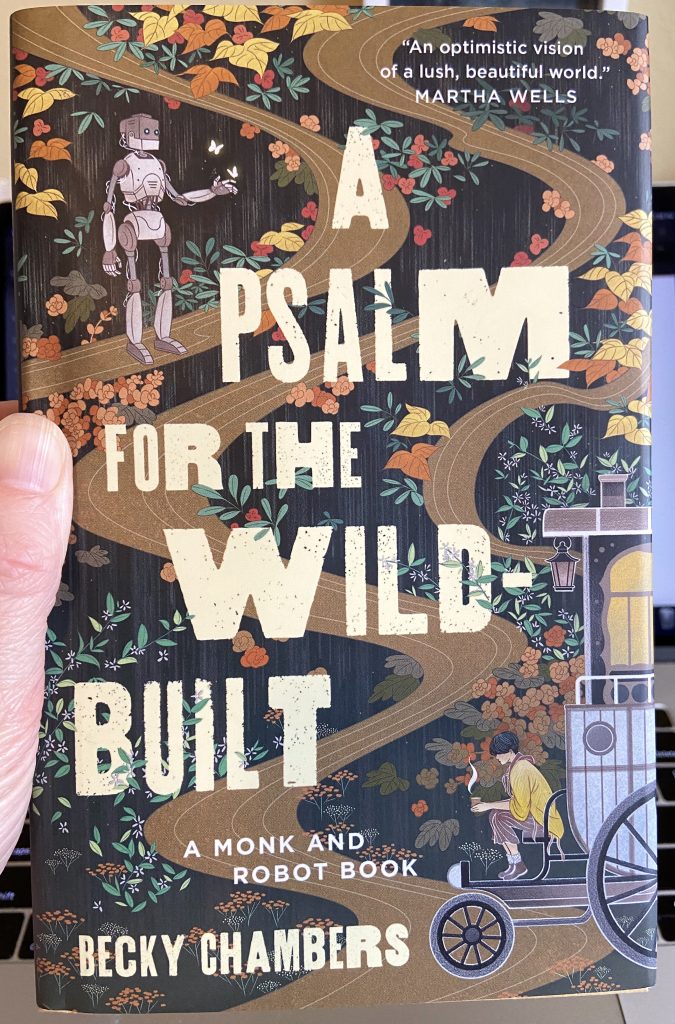Becky Chambers is an optimist. A Psalm for the Wild-Built is a lovely little novel (slightly less than 150 pages) that takes place in a world where humans have figured out that, in order to have a healthy world to live in, they have to restrict themselves to certain comfort levels and spaces in the world – you can’t just go everywhere and do everything. These restrictions are shown as a benevolent anarchism – there doesn’t seem to be any particular person in charge and people get to make their own decisions. Those decisions are respected.
The book is a quest: a monk, Sibling Dex, wants to hear crickets. That’s their overarching goal. But there aren’t any crickets where they are, so they head off into the hills, onto a road that isn’t maintained anymore. They run into a robot.
Robots, in this world, used to work in factories, but gained sentience. The humans let them decide what they wanted to do, and the robots chose to move out into the wilderness. Humans and robots are completely separate. Except that, in Sibling Dex’s trek through the wilderness, they meet one, named Mosscap.
And so Sibling Dex’s quest to hear crickets up in the mountains becomes so much more than that.
A Psalm for the Wild-Built is about love and understanding and acceptance and it is a much needed thing right now. Definitely recommended.


